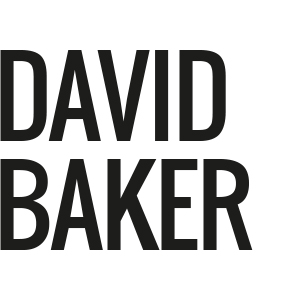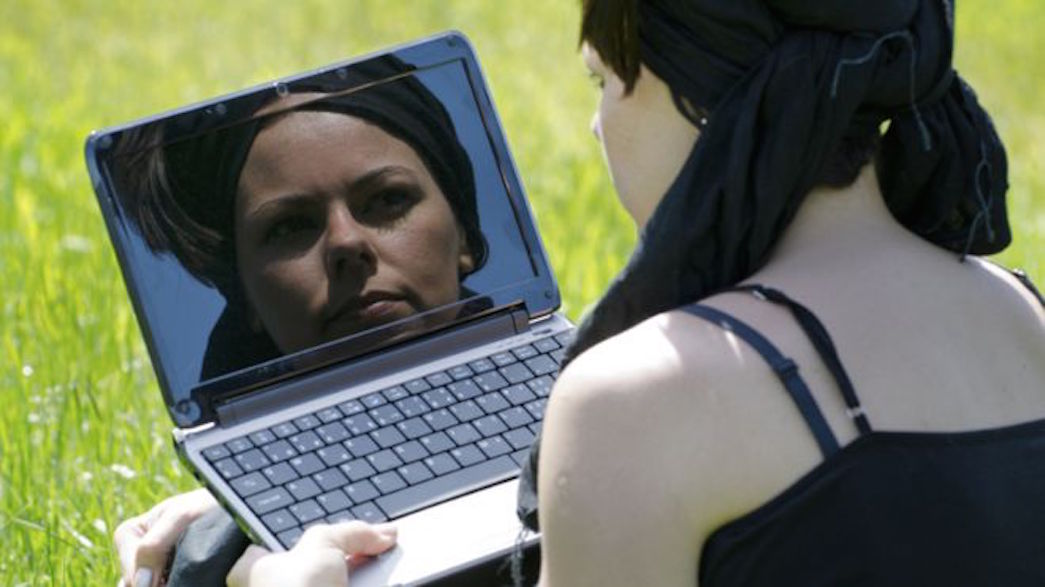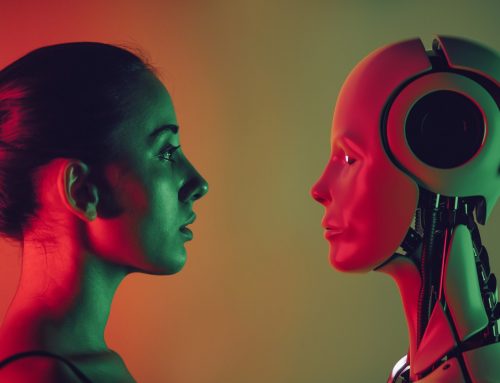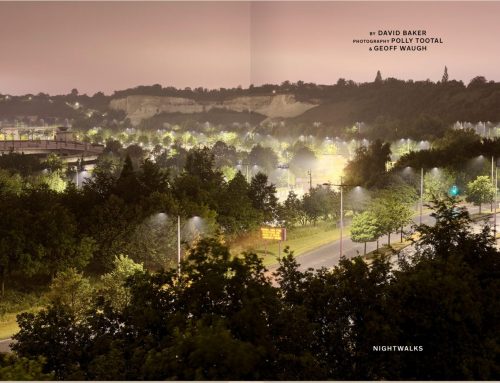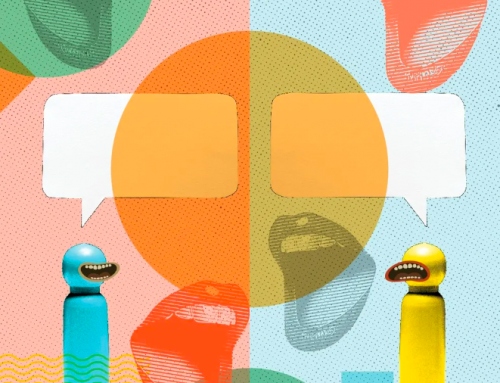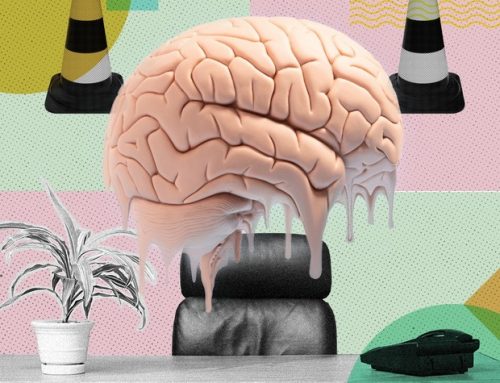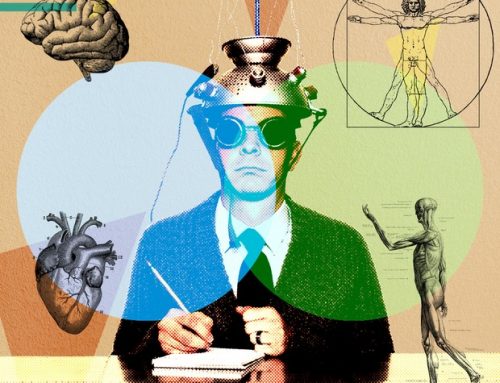OPINION: Our online life is damaging our identity
BBC Magazine, 1 April 2016
In 1993, in the early days of the world wide web, a cartoon appeared in The New Yorker.
It showed a dog, sitting at a computer, turning to another dog and saying: “On the internet, nobody knows you’re a dog.”
The cartoon by Peter Steiner and one of the magazine’s most reproduced ever, captures the thrill of those early days when the internet, then a matter of slow dial-up connections and clunky text-only “bulletin boards”, provided a way for people to reengineer their identity online.
Men could pose as women, the young as old, amateurs as experts, country loners as sophisticated urbanites.
Last year, 22 years on, The New Yorker published another cartoon on the subject, drawn by Kaamran Hafeez. This time, two dogs are watching their owner surf the web. The caption: “Remember when, on the internet, nobody knew who you were?”
The internet has had a huge impact on our sense of identity since its explosion into popular use about 25 years ago. It has brought into our lives people, ideas, viewpoints and cultures that, otherwise, we would never have met or heard of.
And that has forced us to reconsider our identities in comparison with theirs. It has allowed us to ally with people with a similar outlook and become part of their group, even if they live thousands of miles away.
And, above all, it has given us a way to re-engineer our identity almost continually and discover what it is like to be someone very different from our “real” selves.
This is not new, of course. Through make-up, clothing, the music we like, the books we read, the opinions we express, the people we vote for, and so on for ever, we have always been busy defining and redefining our identity.
But, before the internet, that busy-ness took place in the small arena of our friends, family and colleagues – and indeed, much of it was about developing separate identities to show to each group.
Now the potential audience for our identity – and so much of identity is about performance – has increased to levels that, a quarter of a century ago, we would have had only if we were a film star or a rock musician.
If we have 300 friends on Facebook and each of them has 300 friends – and many people, of course, have more – that’s 90,000 people who are two degrees of separation away.
And even if 90% of those are duplicates (people who are also friends with our friends), that leaves 9,000 people observing our life, Like-ing, or not, our opinions and commenting on our photos.
That’s an audience that would have been almost impossible, for someone not working in the arts, politics or the media, to reach in pre-internet times. Now it’s commonplace. Is it surprising that many of us spend a huge amount of time managing our online identity?
Not only has the internet given us these vastly bigger audiences for our identity, it has changed the way we understand how other people see us, from a (usually) private and intimate process to a very public scrutiny of who we are.
Through Likes, comments, ratings and so on, we receive almost instantaneous feedback on the adjustments we make to our identity, and these then become part of our identity itself, as other people can see them.
This is not quiet feedback from close friends – the traditional way that we understand how our identity is perceived. This is the opinion of the masses, viewed by the masses.
Social media has, in part, become a huge exercise in public judgement. And, as anyone who has been shamed or bullied online knows, it can be incredibly powerful.
In small groups of individuals who know each other, the clash between how we see our identity and how others see it can be managed. Managing our identity on the internet takes much more work.
A man called “Jack” told the Guardian recently that he checks his social media profiles tens of times a day and how that takes him away from the physical world around him.
“I’ll often see moments as ‘good content’ for my social media followers,” he said. “It’s almost like the photographing and sharing of a cool time is more important than actually appreciating it in real life.”
This ability to comment on others, often from a distance, has given us a significant power without much corresponding responsibility.
Online, we regularly rate and comment on people and services in ways that, if we are British at least, we wouldn’t think of doing face to face – and that changes our own identities too, from, to put it crudely, being reasonable human beings to acting as cowardly bullies.
The internet is heralded as being about connection. But in many ways it has given us the opportunity to disconnect our acts from their effects. How often do we, for example, consider the consequences of giving an Uber driver a low rating because we didn’t like the way they spoke to us?
Yet falling below an average score of 4.5 stars puts Uber drivers at serious risk of being thrown off the network. Is that really what we had in mind when we tapped out our rating on the way out of the cab?
As well being a world of huge numbers, the internet is also about very high speeds. (Churning big numbers very quickly is about the only thing computers are good at.) And we humans are in danger of trying to keep up with it – a race we can never win.
This means that the world feels much faster than it did even a quarter of a century ago. (The same effect was felt in the early days of the industrial revolution in the late 18th century.) We fret about replying quickly to emails and WhatsApp messages, we worry about not having instant answers to problems we face in life (the illusion created by Google), and we also flit very quickly between identities.
A good example of this is online activism. There are many organisations online that bring about significant change in the world by amassing the power of large numbers of people. And the internet gives us a way of expressing our opinions on geopolitical developments even from a long way away.
But, encouraged, I think, by the speed of the internet, we are also very fickle in the campaigns we support, because they require almost no effort to get involved. Is it still the case that #weareallCharlieHebdo? Or that we are desperately concerned about the fate of the 200 schoolgirls kidnapped by Boko Haram in northern Nigeria in 2014? Or was it just too easy to send a tweet or sign a petition and then move on?
In one sense, of course, the world has (sadly) long been like this, with the news-cycle’s intrinsic short attention span feeding our own. But identity is just as much about purpose and a cause as it is about appearance and opinion, and it is about our actions too. And when those actions stop at clicking on a link and entering our email address, it makes our identity, at the very least, dangerously superficial and fragile.
But, for me, the biggest threat to our identities comes from the internet’s noise. I teach at The School of Life (theschooloflife.com), which was set up by the philosopher Alain de Botton to help people think better about the lives they live, and many of the people who come to our classes complain of the difficulty of finding their “true” identity in amongst all the conflicting messages and demands of the world around them.
This idea, that, somewhere deep down, is the “real” us, is as old as philosophy itself. And it is probably the bedrock of our identity, because it involves things like our values, our sense of purpose, the beliefs that make us who we are.
This is a long way from identity as defined by our culture or ethnicity, or as defined by the things we buy and Like. It is more intimate than that, the part of us that keeps us understanding who we are when the rest of the world becomes overwhelming and confusing.
At the School we often pose the question, “Are you living the life you want to be living, or the life other people want you to live?” (It comes from Socrates.) The internet has brought the opinions of others flooding into our own lives as never before, and it is threatening our ability to understand who we really are.
To discover our true selves, maybe it’s time to disconnect. Not for ever, that would be throwing away the baby with the bathwater, but for significant periods of our days, weeks, months. Because, with disconnection comes quiet and with quiet comes the ability to reflect.
When we were researching Default World, a documentary about the values of Silicon Valley, my producer Peter and I spoke to a lot of people about their experience of technology. Many said they were trying to spend less time online, taking a break from Facebook, connecting only when they needed to. And they spoke with pleasure of rediscovering the physical world around them and the world of human-to-human interaction, unmediated by computers.
I think this is encouraging. We are still learning how to be on the internet, what effect this huge network of computers, server farms, fibre-optic cables and radio signals – a network we have built ourselves – has on our sense of self. We are at the moment, as Thoreau said of people in the industrial revolution, “tools of our tools”.
Disconnecting gives us a chance turn the tables – to see the internet not as something that overwhelms us but as a tool, which we use as and when we need it. Only then can we really understand who we are and what we can give the world. And that, deep down, is the real root of our identity.
